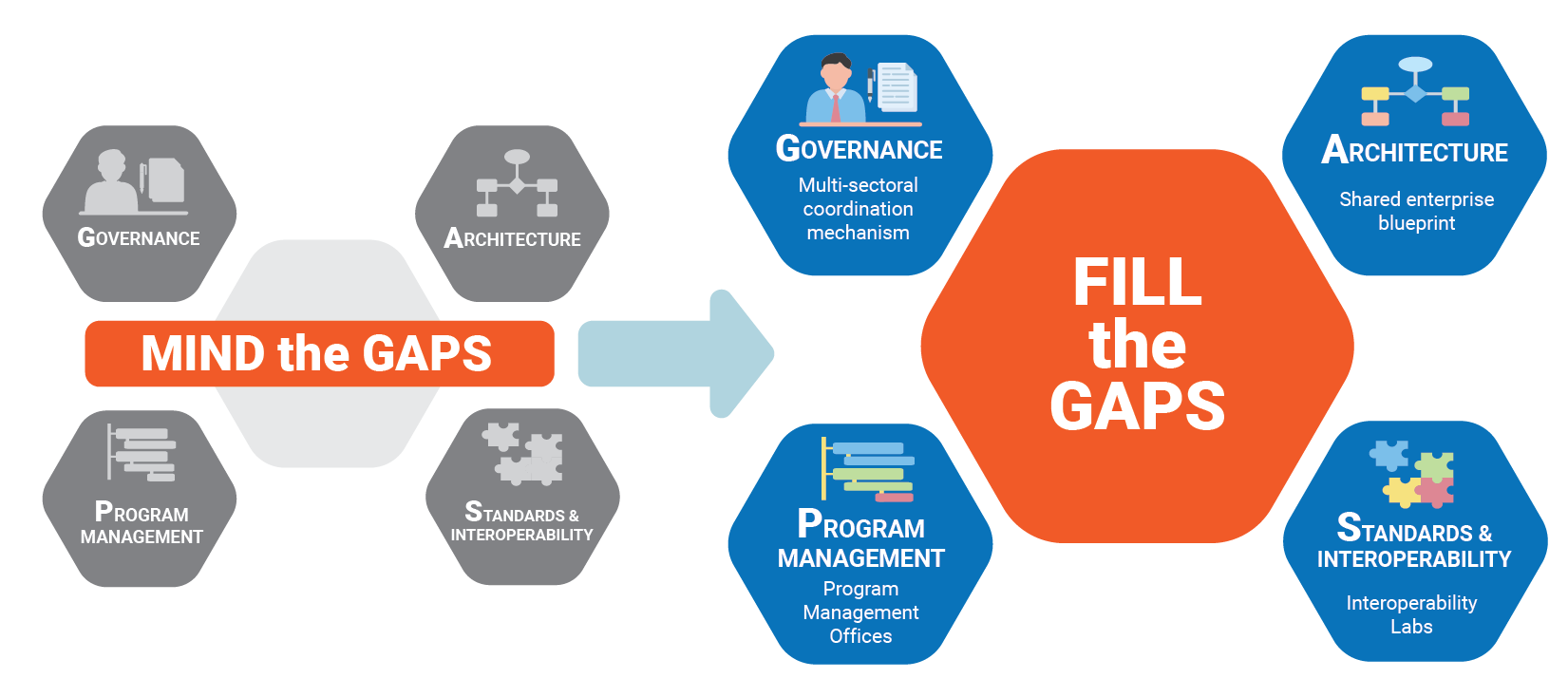Regional Call to Action for Digital Health in Pandemics
We, the Leaders of Ministries of Health and participants of the 7th AeHIN General Meeting, agree to Mind and Fill the G-A-P-S that will strengthen regional health systems response to pandemics, specifically COVID-19:

FOR GOVERNANCE
We call upon stakeholders to support the leadership of the Ministry of Health in developing national digital health strategies that respond to the complexities of pandemic response, such as disease surveillance, testing, contact tracing, quarantine management, and clinical care. In turn, the Ministry of Health shall cultivate a conducive environment for the formation of public-private partnerships to foster much-needed collaboration.

FOR ARCHITECTURE
Pandemics require reliable information to flow across different stakeholders. To enable secure data sharing, countries are encouraged to share a clear interoperability blueprint for adoption by all. This blueprint should be useful for COVID-19 and for other health programs of the MOH. We recommend engaging a regional network of professional certified enterprise architects to advise government and development partners on the blueprint formulation.

FOR PROGRAM MANAGEMENT
We call upon stakeholders to support the MOH strengthen the capacity and capability of their national eHealth Program Management Office (PMO). This includes developing capacity within MOH to manage digital health-related projects within MOH and with other sectors. We encourage MOHs to establish a pool of certified project managers for the PMO. The MOH may leverage regional learning networks like the Asia eHealth Information Network (AeHIN) to catalyze knowledge exchange across different countries in Asia. We invite the MOH to nominate their digital health project management officers to the AeHIN network of project management officers (PMOs) to facilitate learning.

FOR STANDARDS AND INTEROPERABILITY
We request open access and technical assistance to international health standards like ICD11 and HL7-FHIR. These health standards are crucial components of the interoperability blueprint, which will enable the availability of health data for better monitoring of population health and understanding of stakeholders within countries and across the region.

